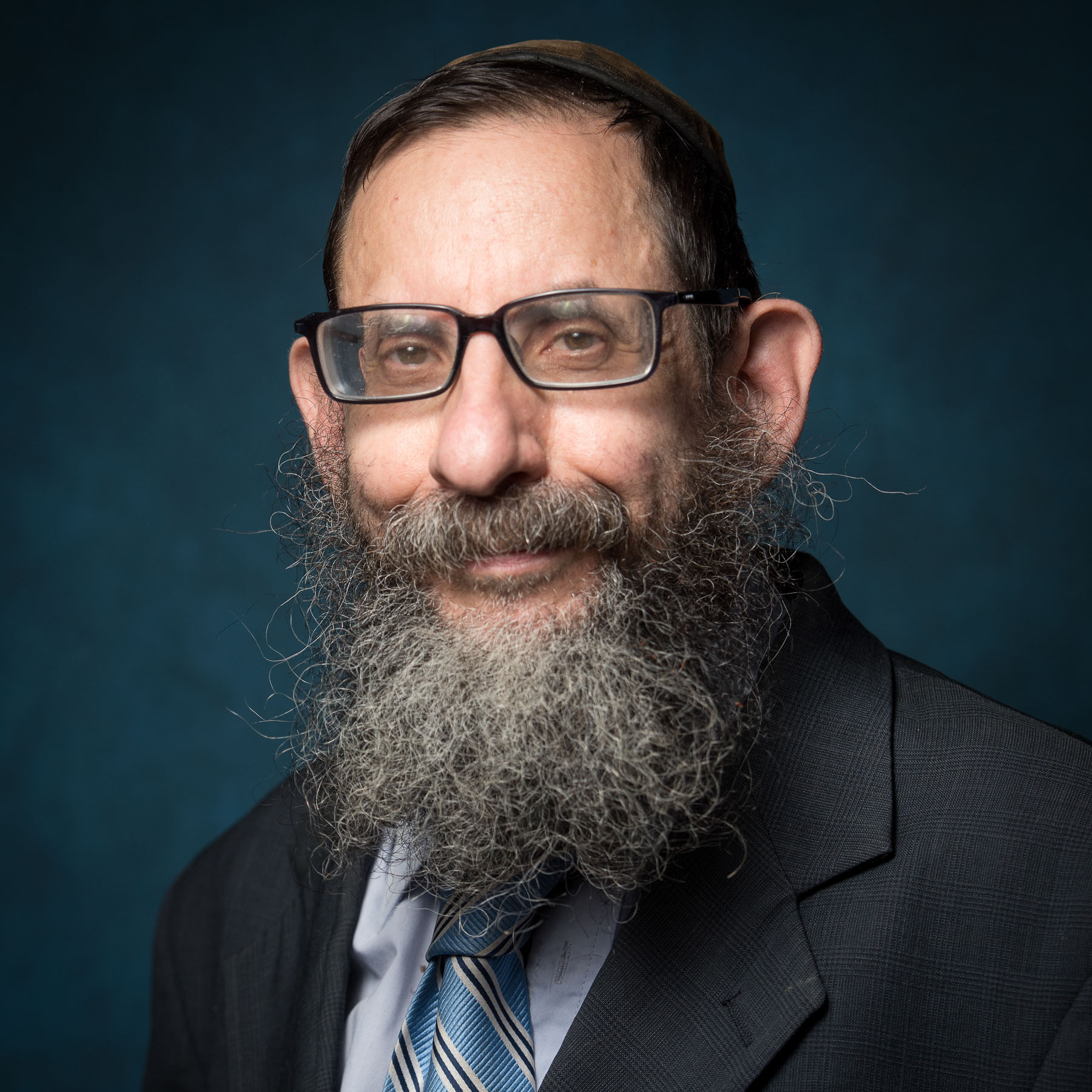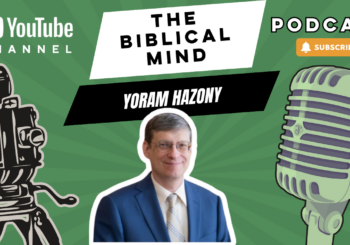Part of the 6 Jewish Thinkers All Christians Should Know series
Joseph Soloveitchik: An Immigrant Rabbi Who Revitalized American Orthodox Judaism
In the first half of the twentieth century, and for decades afterwards, it was a commonplace of Jewish sociology that Orthodoxy had no future in North America. It was taken for granted that American Jews would not commit themselves to rigorous observance of Jewish law, which prohibited a wide variety of work-related activities on the Sabbath, and which barred observant Jews from eating food that is not strictly kosher, to mention only the two most conspicuously intrusive features of Orthodox living.
Enjoying this article? Read more from The Biblical Mind.
It seemed unlikely that many educated and acculturated Jews would take God seriously enough to build their lives around prayer, study of Torah, faithfulness to the commandments, and raising their children to make religious commitment the center of their lives. In a world of broad and practically useful education, it was even less likely that a younger generation would devote years of their lives to studying the Torah on a high level. Application to the abstruse pages of the Talmud might still be seen among the old Eastern European trained rabbis, whom American Jews needed for their ritual expertise but who lacked the education or even the English vocabulary to transmit their way of life and learning.
Today, Orthodox institutions are alive and even thriving in America. In the day schools, the study of Torah constitutes a significant part of the curriculum. The same is true in the yeshivot attended by many Orthodox young men, most of whom are not planning to be professional rabbis/educators, and in the seminaries for young women. The Talmud and surrounding Jewish literature are valued not only because they can guide Jewish practice, but also because they reveal God’s will. For those who seek theological growth, there are philosophical works, rooted in the Torah, that address the human condition from an explicitly Orthodox perspective, using the language of general philosophy, theology, and other humanistic disciplines.
Joseph Soloveitchik: Polymath and Devout Jew
Part of this development and much of its uncompromising intensity is due to the immigration of refugee rabbis and lay people, survivors of the Holocaust, who refused to resign themselves to the withering away of religious commitment. One immigrant rabbi, Joseph Soloveitchik, who arrived in the United States in 1932, before the Holocaust, was the scion of one of the greatest rabbinic dynasties in Eastern Europe and heir to the family’s pioneering advances in Talmudic analysis, while he had also mastered contemporary philosophy, science, and religious thought at the University of Berlin. For over fifty years he tirelessly taught Talmud at Yeshiva University, in Boston, and in other venues. He lectured and wrote on philosophical and theological topics, along the way founding one of the first Jewish day schools in Boston, and serving as the highest authority on Jewish law for the hundreds of rabbis he ordained. His name has become synonymous with total devotion to the all-encompassing life of Torah while also mastering “secular wisdom” and displaying concern for the world outside the Jewish hall of study, together with the ability to propagate that vision among those students willing and able to pursue it.
In the following remarks I hope to go beyond Rabbi Soloveitchik’s iconic status to sketch some of his most important ideas in context and their contribution to Jewish thought and general religious consciousness.
The central place of Halakha, living according to Jewish law, as codified in the Talmud and subsequent rabbinic literature, is well known. The study of that law is the central preoccupation of Jewish intellectual life. That study is not confined to reaching conclusions regarding practical matters of ritual and civil law. The study of Torah as divine revelation is an end in itself; it is regarded as the primary road to the knowledge of God. However, classical Jewish philosophy, medieval and modern, generally concentrated on questions shared by the non-Jewish philosophical tradition and worked primarily through the biblical sources. Rabbi Joseph Soloveitchik (1903 Byelorus–1993 Boston), more than any other thinker, shifted the center of Jewish philosophical reflection to the detailed practice of halakha and to its sources.
The Education and Work of Joseph Soloveitchik
Three intellectual disciplines converge in R. Soloveitchik’s thought. First and foremost, he was rigorously trained in the Brisk (=Brest-Litovsk) method of Talmudic investigation pioneered by his grandfather, R. Hayyim Soloveichik. This “analytic school” sought to uncover the conceptual foundations underlying rabbinic legal texts, that is the various views stated in the Talmud and the major medieval commentators and codifiers. This tendency formalized and systematized the kind of reasoning prevalent in the study of halakhic civil, criminal, and family law, applying it to ritual law, kashrut, the sacrificial cult and so forth. Some form of the Brisker school is now dominant in “Lithuanian” and Lithuanian-style yeshivot. Most of R. Soloveitchik’s teaching and writing was devoted to this discipline. He is especially noted for applying it to “experiential” commandments such as prayer, mourning, festival joy, repentance, and the like.
After many years of intensive rabbinic study, the young R. Soloveitchik did his PhD at the University of Berlin. His thesis, on neo-Kantian philosophy of science, serves as backdrop to some of his writing on the methodology of Halakha. In Halakhic Man (Hebrew 1943), he depicted the Torah scholar as a type of theoretical scientist somewhat akin to “cognitive man,” who is interested in formulating and testing objective principles correlated with concrete experience. The Halakhic Mind (drafted at same time in English, published 40 years later) presents an epistemological framework in which Judaic principles are correlated with the subjective data of religious experience. Halakha provides the most objective and reliable guide for the analysis of Judaism.
And You Shall Seek From There, drafted in Hebrew in 1940’s, published 1978, explores the relationship with God implied by these two works. R. Soloveitchik here analyzes two poles of religious existence: on the one hand, the quest for God via “natural consciousness,” which includes the variety of philosophical, scientific, aesthetic, and mystical avenues; on the other hand, “revelational consciousness,” when God confronts human beings by revealing His will to them. At the highest level, the human quest for God and revelation come together in imitatio Dei, the imitation of God and cleaving unto God by identifying with His will. At this stage, the faithful and creative student of Torah overcomes the tension between the desire for autonomy and the otherness of the commanding God.
Another major influence deriving from his philosophical studies is that of phenomenology and the theological movements of the time: these include Kierkegaard, Otto, Barth, Emil Brunner, and Max Scheler. Many of R. Soloveitchik’s writings present typologies of religious personalities and attempt to define their essential characteristics. Perhaps the best known is Lonely Man of Faith (1965), which contrasts Adam I (“majestic man”) as portrayed in the creation story of Genesis 1, with Adam II (“man of faith”) who appears in the complementary story of Genesis 2. The former is a scientific-technological type, in the image of God the creator, who strives to enhance his dignity by dominating the world practically and cognitively through an ethic of triumphant achievement. The latter seeks communion with God and with other human beings that is rooted in the ontological experience of loneliness and singularity and responds to divine imperatives. Despite the irreconcilable tension between them, both types are mandated by God. The individual and the community oscillate between the commitments engendered by each role. In the contemporary utilitarian-pragmatic world, the man of faith experiences not only the loneliness inherent in his ontological nature, but also a sense of loneliness deriving from his specific historical situation.
In 1932 R. Soloveitchik immigrated to Boston, where he was active in various rabbinical roles and where, together with his wife, he founded the Maimonides School, which pioneered the combination of first-rate academics with a substantial curriculum of Torah studies. In 1941 he succeeded his father as senior teacher of Talmud at Yeshiva University, where he became known as “the Rav.” For the next 45 years he commuted weekly between Boston and New York, teaching a heavy schedule in both cities. By the 1950s he was chair of the Halakha Commission of the Rabbinical Council of America, which made him the highest authority for the “modern” Orthodox, largely university-educated rabbinate in North America. He gave periodic discourses in his role as Honorary President of the Religious Zionists of America. In the early 1960s there was a strong movement in favor of his being elected Ashkenazi Chief Rabbi of Israel, but he declined to stand for the position, on the grounds that he was a teacher and did not want to become involved in politics. The illness of his wife and her death in 1967 had a profound impact on his inner life, though he continued his work unabated for many years until his retirement in 1985 due to ill health.
In his last active years, R. Soloveitchik overcame some of the reservations characteristic of his family tradition regarding publication. After his death many more manuscripts were published by the estate. Many disciples and auditors published their notes or tape transcriptions. These unofficial productions differ in quality and reliability. Some of the elite students concentrated on the Talmudic lectures, to the exclusion of the theological and philosophical output. Other admirers attempted to publicize their version of his communal and ideological teachings. Due to the complexity of R. Soloveitchik’s thought and the variety of disciplines in which he worked, it may have been inevitable that divergent, selective images of the man and his work would circulate widely.
Halakhic Discipline, Zionism, and Vatican II
R. Soloveitchik’s primary legacy is his productivity as a major Talmudist of the Brisker school, together with his attempt to portray the intellectual and existential premises of the halakhic discipline and the way of life based on it and his many essays on the phenomenology of religious life. At least two aspects of his public engagement, his Zionism, and his view of interfaith relations, are subjects of ongoing interest.
As noted, R. Soloveitchik came to identify with and advocate religious Zionism. Many of the loudest voices in religious Zionism are inclined to eschatological interpretations of Zionism, viewing the return of the Jewish people to the land of Israel as a harbinger of ultimate redemption. R. Soloveitchik, by contrast, justified the value of Israel primarily in terms of the security and welfare it can provide the Jewish people.
This emphasis may very well have practical implications as well. R. Soloveitchik and those closest to his way of thinking have looked askance at what they see as a tendency toward placing the State beyond criticism and overreliance on military might. Despite his enthusiasm for Jewish settlement in the land of Israel, R. Soloveitchik ruled that it was halakhically permissible for Israel to withdraw from parts of the land taken in the Six Day War if this would indeed bring about peace. Likewise, when Christian militias under Israeli aegis allowed massacres in Palestinian refugee camps in Lebanon (1982), he demanded an Israeli commission of inquiry to examine possible Israeli responsibility. These views are still in the minority among Israeli religious Zionist politicians and activists but have gained a wider audience with the immigration to Israel of rabbis educated by R. Soloveitchik.
The advent of Vatican II in the early 1960s was attended by debate on Jewish participation in interfaith dialogue. R. Soloveitchik formulated his position in “Confrontations” (1964) and subsequent guidelines. His view, in brief, was that the intimate theological dogmas of different faith communities, such as the singularity of the Jewish people or the Trinity, make their experience incommunicable, and that organized dialogue was liable to do violence to authentic religious existence, especially when one side represented the majority culture and the other side a minority. At the same time, he advocated seeking common ground regarding social and ethical concerns, even while acknowledging that such positions cannot be untangled from the particularistic doctrines of each community. This approach was adopted by the RCA. R. Joseph Soloveitchik himself lectured, on occasion, to Christian audiences on subjects of shared concern.
Did you enjoy this article? Check out The Biblical Mind podcast.





